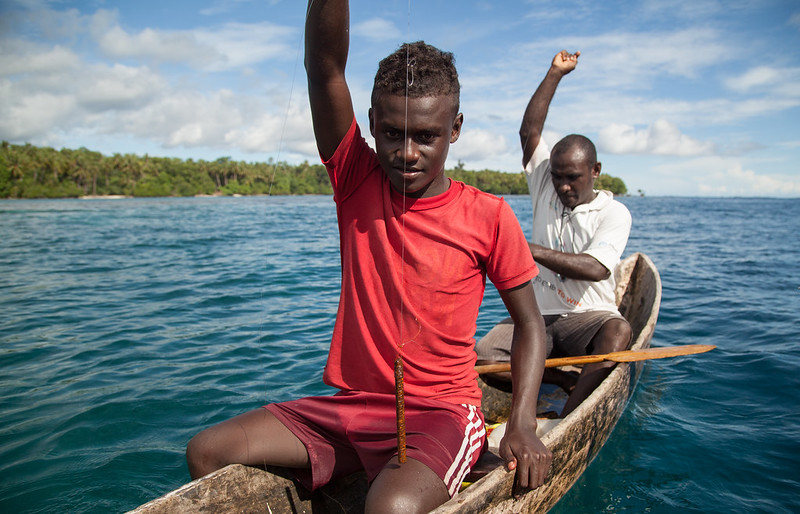Building adaptive capacity to climate change: broadening the approach
- From
-
Published on
30.04.18
Efforts to equip people to respond to climate change have to date tended to focus on a narrow understanding of adaptive capacity. A recent study led by FISH researchers and published in Nature Climate Change proposes an approach to build adaptive capacity across five domains.
Many government and non-government organizations are working to equip people to respond to climate change, to minimize negative effects and even look for new opportunities. Having ‘adaptive capacity’ means having the necessary resources at hand as well as the willingness and ability to take effective action in the face of change.
In some spheres, people have held a very restricted view of the capacity to adapt. A study recently published in Nature Climate Change widens this perspective and outlines five areas that need to be considered to truly build adaptive capacity. These are: the assets that people can draw upon in times of need; the flexibility to change strategies; the ability to organize and act collectively; learning to recognize and respond to change; and the agency to determine whether to change or not.
The research team, led by Josh Cinner of the ARC Centre of Excellence for Coral Reef Studies, a FISH managing partner, used tropical coastal communities as examples because they are already feeling the impacts of climate change. “However,” says Dr. Philippa Cohen, leader of the FISH flagship Sustaining Small-scale Fisheries and one of the authors of the paper, “we believe that there are broader lessons, highlighted by our findings, that will be useful to efforts to build adaptive capacity elsewhere.”
Interlinking between domains
A core component of the study’s framework is the interlinking between the five domains. The examples discussed highlight that it may well be ineffective only to build or examine any one dimension. In fact, the paper points out that a lot of emergency aid and development support in the past has tended to focus only on physical and economic assets. “This might help in short-term coping but doesn’t necessarily lead to longer term and lasting capacity to deal with future shocks,” says Cohen.
Feedbacks and interactions can occur among any of the domains. For example, when the distribution of fish species available to coastal societies changes (something that is predicted due to rising sea temperatures), the fishers might use their savings or borrow money to buy bigger boats and freezers to store fish during longer voyages. However, greater capital investment into fishing might reduce flexibility—in this case the ability to switch to a different livelihood—a characteristic shared by many small-scale fishers and farmers.
Building adaptive capacity demands compromises among the different domains, a consideration of justice and distribution, and managing the complex feedback process. “In the future we will be looking into how processes of change affect people differently—and what social factors, including gender or wealth, might mean that some people fare better after climate or other shocks,” says Cohen. “Policymakers will need to consider and plan for this to address the principle of leaving no one behind.”
Current FISH initiatives with community and government partners to increase adaptive capacity include testing climate-smart agriculture technologies, establishing climate-smart villages and strengthening fisheries management. In line with the CGIAR system-level outcome goals, these initiatives aim to enable these communities to deal with climatic risks and extremes by 2022. Effectively testing and learning how adaptive capacity can be built in different coastal, inland, fishing and farming communities remains a challenging yet essential focus of research. Simultaneously, research and practice must account for processes and policies that act at higher scales that accentuate or dampen the impacts that people experience and their capacity to adapt.
Drawing together experiences
Continuing collaboration with the ACR Centre of Excellence for Coral Reef Studies will draw together experiences from across scales and different settings to distil practical strategies to build capacities to adapt to inevitable environmental and social shocks, including the impacts of climate change.

